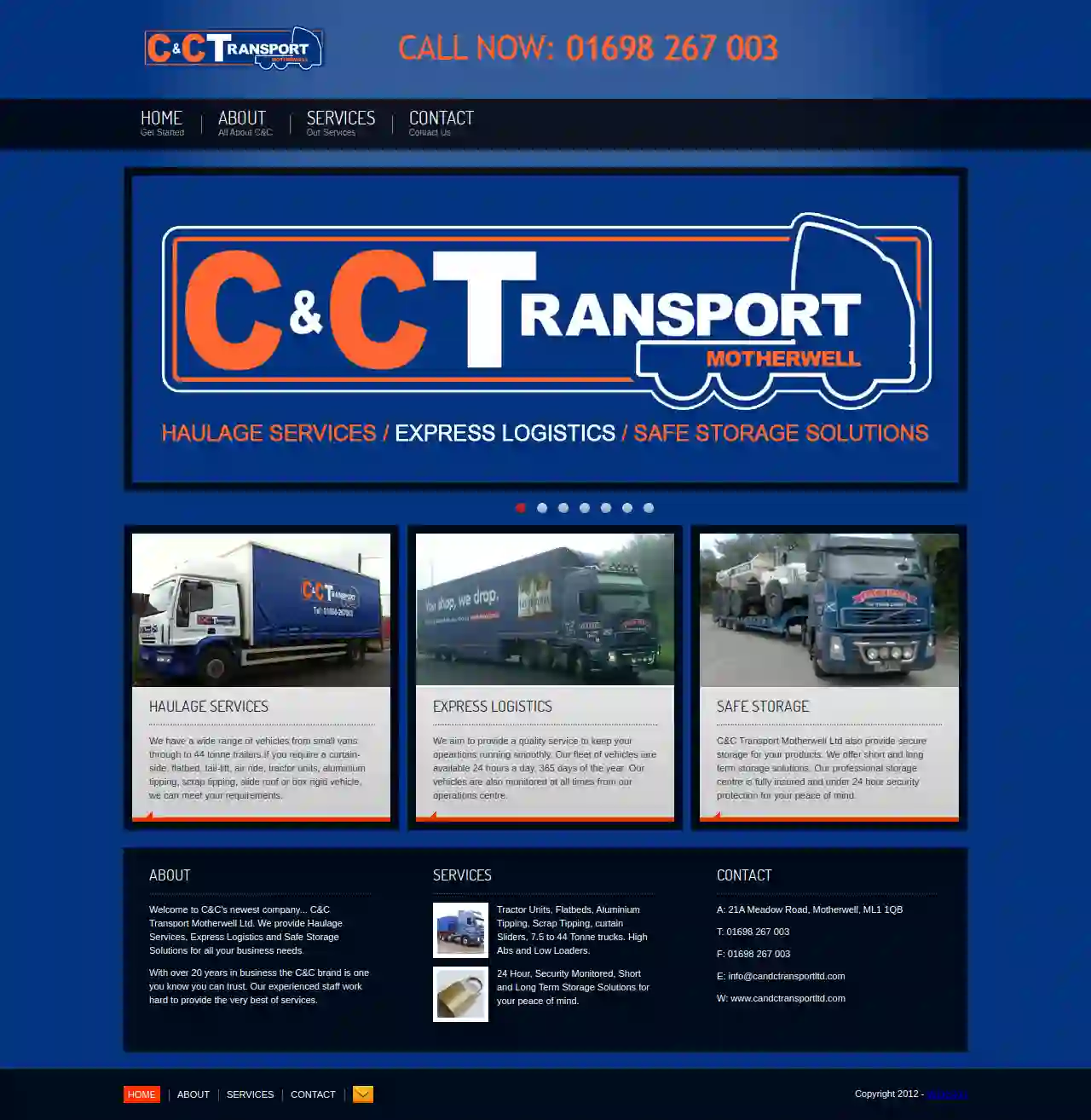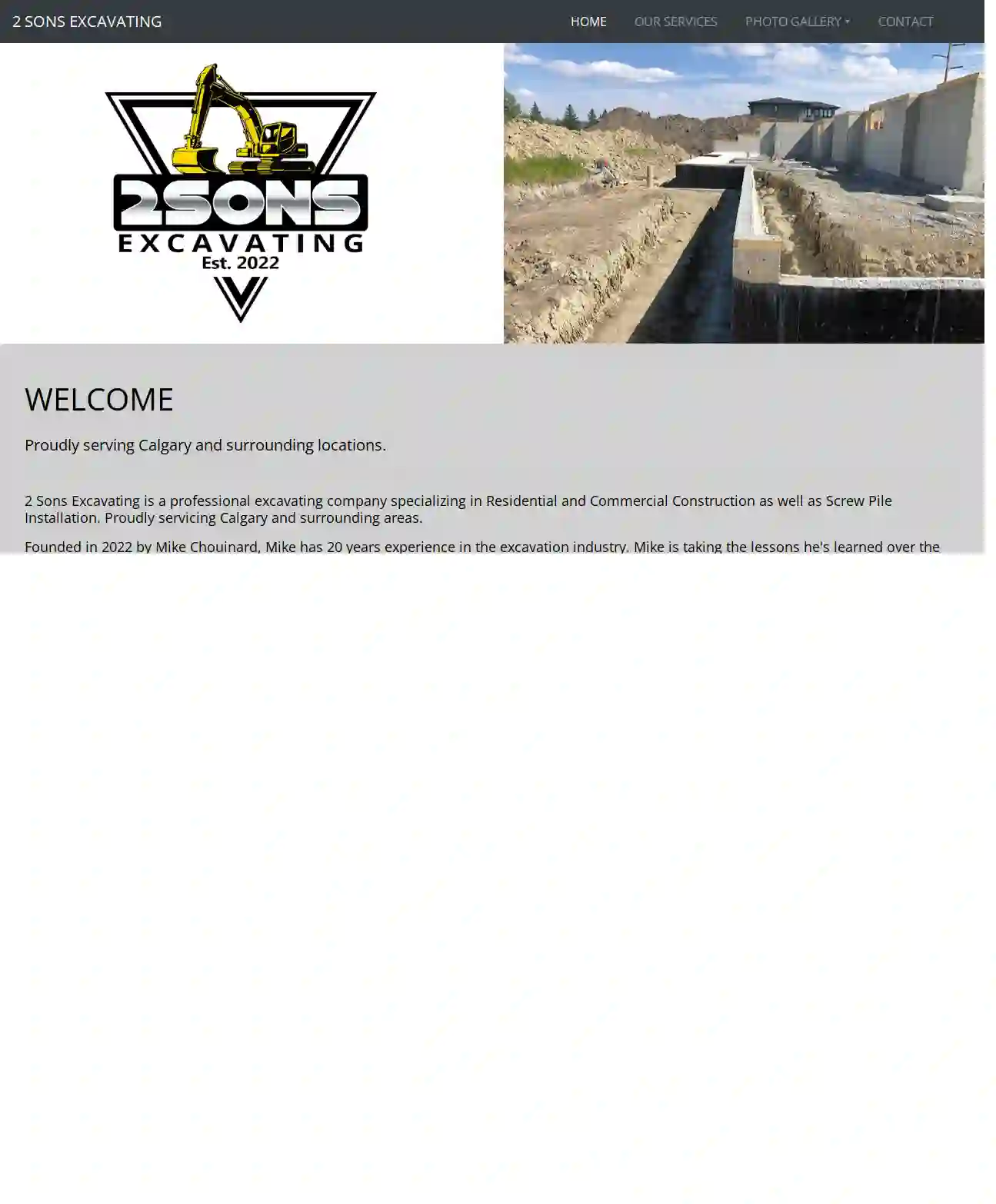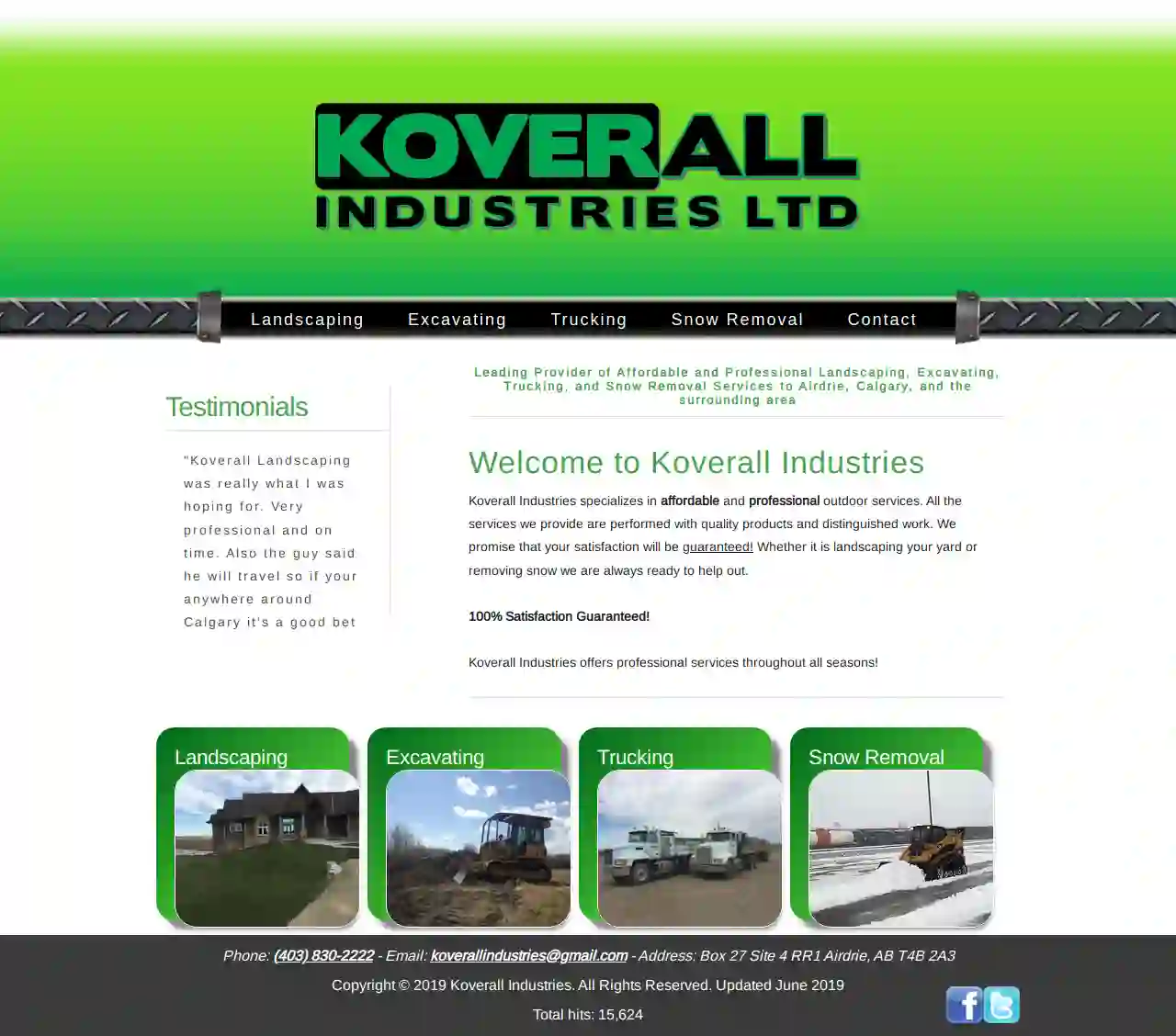Excavation Contractors Newmains
Top 10 Excavation Contractors in Newmains
Receive 3 FREE Trenching Services quotes for your project today! Compare profiles, reviews, accreditations, portfolio, etc... and choose the best offer.

GeoCorp Ltd
Motherwell, GBEngineering Innovation At GeoCorp, we blend engineering excellence with innovative solutions to bring your vision to life. Our expert team is ready to empower you, turning your ideas into reality. What Sets us Apart What sets us apart is our comprehensive range of services. We understand that funding is crucial for your success and our team excels in writing the project and funding-securing bids you need to grow and succeed. By combining our technical expertise in construction and engineering with our strategic understanding of the grant and procurement landscape, we position our clients for success. About GeoCorp We prioritise collaboration, creativity, and transparent communication in every project. Our journey with clients begins at project inception, providing steadfast support throughout design, planning, and construction phases. For companies seeking investment or facing growth challenges, we offer a holistic set of resources and support, including innovation audits, market analysis, and financial modelling.
- Services
- Why Us?
- Gallery
Get Quote
C & C Transport Motherwell Ltd
44 reviews21A Meadow Road, Motherwell, ML1 1QB, GBAbout C&C Welcome to C&C's newest company... C&C Transport Motherwell Ltd. We provide Haulage Services, Express Logistics and Safe Storage Solutions for all your business needs. With over 20 years in business the C&C brand is one you know you can trust. Our experienced staff work hard to provide the very best of services.
- Services
- Why Us?
- Gallery
Get Quote
GAP Hire Solutions - Motherwell
3.623 reviewsCitypoint 2, 25 Tyndrum Street, Glasgow, G4 0JY, GBAt GAP Hire Solutions, we are committed to empowering your projects with efficiency, reliability, and unmatched innovation. Watch how our solutions seamlessly elevate your construction projects. Don't miss this opportunity to experience the future of construction. Our Divisions Plant Hire Tool Hire Lifting & TIC Non-Mechanical Trenching & Shoring Survey & Safety Welfare Services Tanker Services Event Services Pump Services If you have any questions or would like to discuss how GAP can uplift your projects, feel free to reach out to our friendly team here.
- Services
- Why Us?
- Gallery
Get Quote
2 Sons Excavating Ltd.
52 reviews812 Woodside Drive, Airdrie, T4B 2H1, GBWelcome to 2 Sons Excavating Proudly serving Calgary and surrounding locations, 2 Sons Excavating is a professional excavating company specializing in Residential and Commercial Construction as well as Screw Pile Installation. Founded in 2022 by Mike Chouinard, Mike brings 20 years of experience in the excavation industry to the table. Mike is taking the lessons he's learned over the years and going out on his own with the support of his family. 2 Sons Excavating is a family owned and operated business based out of Airdrie, Alberta. Mike is married to wife Lindsey and they have 2 sons (Jax and Nixon) who are the inspiration behind the name of the company.
- Services
- Why Us?
- Gallery
Get Quote
Sked Construction
4 New Trows Road, Lesmahagow, South Lanarkshire, ML11 0EW, GBA team of reliable and experienced contractors Sked Construction is a family-owned business established in 1975, with a strong reputation for quality and service. We provide a comprehensive range of construction services, specializing in civil engineering, concrete works, and full design and build projects. Our civil engineering services are tailored to meet the specific needs of our clients, whether it involves detailed engineering design drawings, complete site installation packages, site surveys, soil analysis, ground bearing capacity investigation, or soil contamination reports. Why us We are confident that all of our past and present customers would be happy to provide a testimonial reference for Sked Construction. We hope that in the future, we can add your company to our list of satisfied customers. Over 47 years of experience 200+ successfully executed projects Exceptional work quality
- Services
- Why Us?
- Testimonials
- Gallery
Get Quote
Koverall Industries Ltd.
4.917 reviewsBox 27 Site 4 RR1, Airdrie, T4B 2A3, GBLeading Provider of Affordable and Professional Landscaping, Excavating, Trucking, and Snow Removal Services to Airdrie, Calgary, and the surrounding area Welcome to Koverall Industries Koverall Industries specializes in affordable and professional outdoor services. All the services we provide are performed with quality products and distinguished work. We promise that your satisfaction will be guaranteed! Whether it is landscaping your yard or removing snow we are always ready to help out. 100% Satisfaction Guaranteed! Koverall Industries offers professional services throughout all seasons!
- Services
- Why Us?
- Testimonials
- Gallery
Get Quote- Fi
First time driveways
5120 reviewsMotherwell, GB- Services
- Why Us?
Get Quote - Mo
Montside Groundworks Ltd
4.48 reviewsAirdrie, GB- Services
- Why Us?
Get Quote - Sh
ShearForce Equipment
48 reviewsAirdrie, GB- Services
- Why Us?
Get Quote - Co
Core Plant Hire Ltd
4.17 reviewsMotherwell, GB- Services
- Why Us?
Get Quote
Over 13,059+ Excavation Businesses in our network
Our excavation experts operate in Newmains and surrounding areas!
ExcavationHQ has curated and vetted the Best Excavation Companies in and around Newmains. Find a trustworthy business today.
Frequently Asked Questions About Excavation Contractors
- Project Size and Scope: Larger, more complex excavations naturally take longer.
- Soil Conditions: Rocky or challenging soil types can slow down progress.
- Site Accessibility: Limited access might require more time for maneuvering equipment and hauling materials.
- Weather: Inclement weather can cause delays.
- Permitting and Inspections: Waiting for permits or inspections can extend the timeline.
What is the difference between excavation and grading?
Excavation: Primarily involves removing earth or other materials from a site. It's about digging down and creating space.
Grading: Focuses on shaping and leveling the ground to a specific slope or elevation. It's about adjusting the existing terrain.
For example, you might excavate a foundation and then grade the surrounding area to ensure proper drainage and a level surface for landscaping.
How long does an excavation project take?
What is the difference between topsoil and subsoil?
Topsoil: The uppermost layer, typically rich in organic matter, nutrients, and microorganisms. It's essential for plant growth and is often darker in color.
Subsoil: The layer beneath the topsoil, containing less organic matter and generally denser. It provides support for roots but is less fertile than topsoil.
During excavation, topsoil is often removed and preserved separately for later use in landscaping, while subsoil is typically used for backfilling or other less demanding applications.
What is the difference between cut and fill excavation?
Cut: Involves excavating soil from an area where the existing grade is higher than the desired grade.
Fill: Refers to using the excavated soil ('cut' material) to raise the grade in an area where the existing grade is lower than desired.
This method minimizes the need to import or export soil, reducing costs and environmental impact. It's commonly used for site preparation, road construction, and landscaping.
What is the difference between excavation and grading?
Excavation: Primarily involves removing earth or other materials from a site. It's about digging down and creating space.
Grading: Focuses on shaping and leveling the ground to a specific slope or elevation. It's about adjusting the existing terrain.
For example, you might excavate a foundation and then grade the surrounding area to ensure proper drainage and a level surface for landscaping.
How long does an excavation project take?
- Project Size and Scope: Larger, more complex excavations naturally take longer.
- Soil Conditions: Rocky or challenging soil types can slow down progress.
- Site Accessibility: Limited access might require more time for maneuvering equipment and hauling materials.
- Weather: Inclement weather can cause delays.
- Permitting and Inspections: Waiting for permits or inspections can extend the timeline.
What is the difference between topsoil and subsoil?
Topsoil: The uppermost layer, typically rich in organic matter, nutrients, and microorganisms. It's essential for plant growth and is often darker in color.
Subsoil: The layer beneath the topsoil, containing less organic matter and generally denser. It provides support for roots but is less fertile than topsoil.
During excavation, topsoil is often removed and preserved separately for later use in landscaping, while subsoil is typically used for backfilling or other less demanding applications.
What is the difference between cut and fill excavation?
Cut: Involves excavating soil from an area where the existing grade is higher than the desired grade.
Fill: Refers to using the excavated soil ('cut' material) to raise the grade in an area where the existing grade is lower than desired.
This method minimizes the need to import or export soil, reducing costs and environmental impact. It's commonly used for site preparation, road construction, and landscaping.